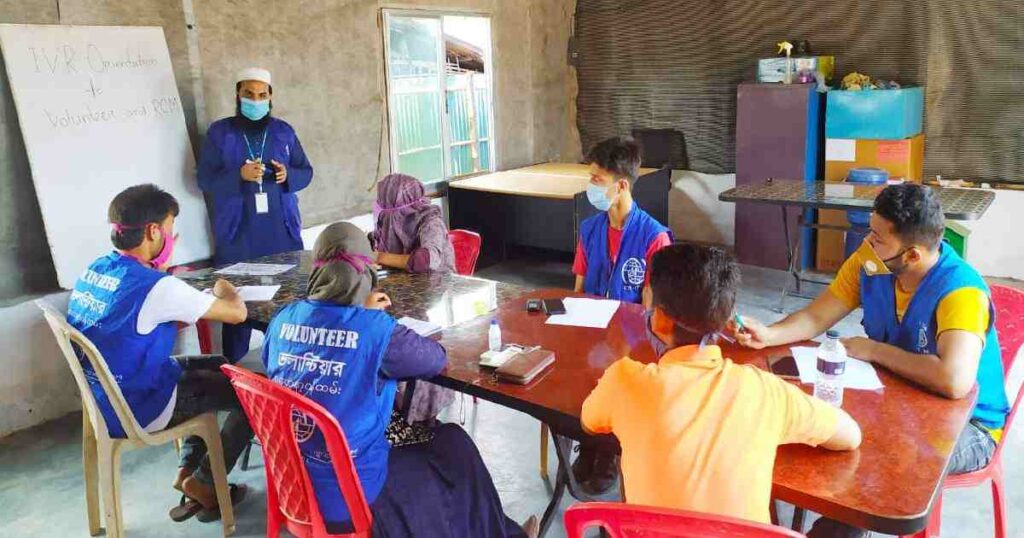The coronavirus pandemic poses an enormous risk to around 1.2 million people in Cox’s Bazar including over 860,000 Rohingyas, said International Organization for Migration (IOM).
Amid this pandemic, Interactive Voice Response (IVR) tool has been helping in disseminating key information and collect community feedback throughout the crisis, said a press release on Friday.
The importance of protecting the flow of accurate and authentic information and protecting an evidence-based dialogue are necessary amid widespread rumors and misinformation to the fight against COVID-19, it said.
The IOM, in close collaboration with government and local actors, began using an IVR mass communication tool since late April to disseminate key information and collect community feedback throughout the crisis in the area.
Dubbed the ‘COVID Info Line’, the system uses pre-recorded information and messaging through phone networks to share critical information in the refugees’ local language across the camps.
The COVID Info Line also allows users to record questions, comments and share concerns with IOM that may be replied to – holding IOM more accountable to beneficiaries.
“The IVR system is another step to strengthen accountability and two-way communication loops with all affected communities – particularly with Rohingyas,” said Manuel Pereira, Deputy Chief of Mission at IOM Bangladesh.
“Being able to express question and concerns in their own language and without intermediaries allows IOM to tailor its sectoral response to be more efficient,” he added.
As of June 2, over 26,000 COVID Info Line individual users were registered – leaving almost 20,000 messages for IOM from April 26.
Considering, on average, one user per family – this represents around 112,000 Rohingyas receiving and sharing information with IOM.
Over 235,000 calls have been made to beneficiaries utilizing 36 messages pre-approved by the Refugee Relief and Repatriation Commission (RRRC) and Intra Sectoral Coordination Group (ISCG).
Message content varies from “Basic COVID-19 Information” such as symptoms and hygiene best practices, to “Testing, Isolation and Quarantine” that provide up-to-date information on Isolation and Treatment Centers, quarantine requirements and confirmed cases within Bangladesh.
Meanwhile, over 61,000 COVID Info Line users received emergency warning system messages in the days leading up to Cyclone Amphan.
Rohingya beneficiaries have used the communication channel to identify shelter, WASH and livelihood needs that, without the IVR system, would potentially go unnoticed.
IOM has been actively working to expand the IVR system’s scope to host community members across the district.A total of 29 cases of COVID-19 have been identified in the Rohingya camps as of May 31, IOM said.
As the numbers continue to rise, it is paramount to the effectiveness of the response that quality information continues to reach those in need – inside and outside of the camp.
source: UNB




